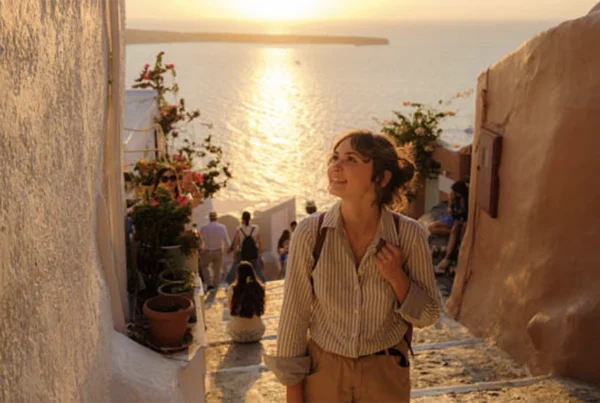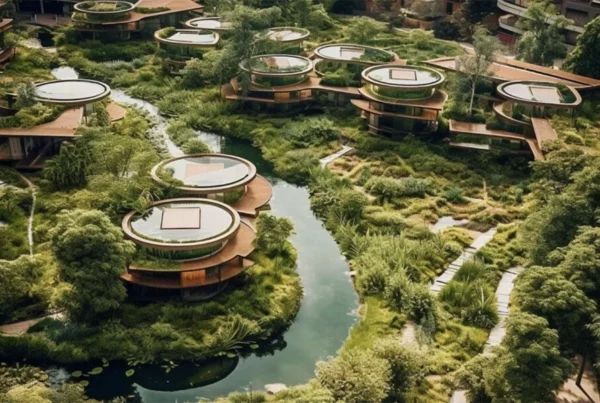Luxury travel isn’t what it used to be. It’s no longer about marble lobbies, champagne on arrival, or exclusive check-ins. For today’s high-end traveller, luxury means something else entirely: personal transformation. Time to reflect. Space to disconnect. Experiences that feel purposeful, restorative, and even life-changing.
This fundamental shift is reshaping the hospitality landscape. Wellness is no longer a side offering—it’s central to the guest proposition. Travellers are prioritising clarity over opulence, seeking experiences that resonate on a deeper emotional and psychological level. And increasingly, they’re turning to luxury retreats to find it.

Why travellers are choosing retreats over traditional luxury stays
According to the American Express 2024 Global Travel Trends Report, over two-thirds of travellers say they would rather spend on experiences that support their mental wellbeing than on traditional luxury perks. That means fewer spa weekends with champagne and more multi-day immersions focused on emotional reset, personal growth, and holistic health.
This retreat trend has accelerated across multiple segments. Solo travellers are booking getaways designed around mindfulness and creativity. Founders are trading boardrooms for offsite team retreats in nature. Creatives are seeking space to focus, and high performers are prioritising recovery as much as achievement.
What these travellers have in common is a desire for intentionality. They’re looking for more than beautiful surroundings. They want curated programs—led by skilled facilitators—that help them think differently, feel restored, or reconnect with their purpose. The retreat is no longer an indulgent escape. It’s a strategic investment in wellbeing, performance, and perspective.
A new delivery model for high-end hospitality
As this shift gains momentum, hospitality businesses are being forced to rethink their operating models. It’s no longer enough to offer yoga on the terrace or add a detox juice to the breakfast menu. Guests expect a full journey—one that is immersive, goal-oriented, and emotionally intelligent.
That means designing programs that incorporate a range of disciplines: movement, mindfulness, nutrition, learning, storytelling, and nature connection. It also means offering choice, pacing, and moments of silence—elements that are often overlooked in traditional hotel programming.
The logistical complexity is high. A single retreat can involve multiple guest transitions per day, facilitators flying in from various locations, equipment set-ups, personalised meal plans, and real-time adjustments based on group energy and feedback. Yet the guest experience must feel seamless and unforced. That’s the challenge—and opportunity—of retreat hospitality.
Properties that can deliver on this promise are seeing results. Higher occupancy across shoulder seasons. Longer stays. Higher spend per guest. And in many cases, stronger emotional loyalty from guests who now associate the venue with a personal breakthrough or meaningful life moment.
A new skill set for hospitality teams
These evolving guest expectations are changing what it means to work in luxury hospitality. It’s no longer just about operational excellence. It’s about emotional intelligence, program design, and the ability to hold space for transformation.
Retreat coordinators need to understand group dynamics. Chefs must be fluent in wellness nutrition and adaptable to individual needs. Front desk teams must balance discretion with proactive care. Event staff need to think like experience designers.
This is creating demand for a new kind of hospitality professional—one who blends operational acumen with a deep understanding of human behaviour and guest psychology. The best teams are now those that can anticipate not just logistical needs, but emotional ones too.
And as the format of hospitality events changes—from weddings and conferences to creative residencies and team offsites—the people behind them need to change too.
Education is adapting to meet industry demand
The rise of luxury retreats is also reshaping hospitality education. Leading hotel schools are integrating wellness programming, experiential design, and long-form event planning into their curricula, recognising that these are now core competencies for future hospitality leaders.
At Les Roches, for example, students are trained to think beyond traditional service models. The curriculum includes modules on guest experience design, wellness integration, and holistic hospitality. Students learn how to coordinate retreat logistics, manage guest pacing, and work cross-functionally across operations, culinary, and events.
This hands-on approach ensures that graduates enter the workforce not only with operational skills, but also with the mindset required to craft experiences that resonate with modern travellers. They’re taught to lead with purpose, not just efficiency and to see hospitality as a force for positive change in people’s lives.
Retreat-first properties are redefining the market
Across the globe, forward-thinking properties are embracing the shift toward retreat-led hospitality. From luxury eco-resorts in Costa Rica and Bali to alpine wellness lodges in Switzerland and boutique estates in the English countryside, the retreat model is being woven into brand strategy.
These venues are no longer just competing on amenities or design—they’re competing on outcomes. Can they offer guests emotional reset? Creative breakthroughs? Reconnection with their team or values? Can they deliver an experience that guests will credit with changing something fundamental in their lives?
The rise of branded retreats and in-house facilitation teams is further evidence of this shift. Hospitality groups are no longer waiting for third-party retreat organisers to fill their calendars. They’re developing their own programs, building internal expertise, and marketing directly to communities seeking purposeful travel.
What this means for the future of luxury hospitality
The implications for the industry are profound. Retreats are no longer a niche segment. They’re becoming a central pillar of the luxury offering. And that means the entire operating model—design, staffing, training, and delivery—needs to evolve.
For general managers and hospitality leaders, the challenge is to foster a culture of adaptability, empathy, and cross-functional coordination. For educators and trainers, it’s about equipping talent with the right blend of soft and hard skills. For brands, it’s about shifting from product-based messaging to purpose-driven storytelling.
Ultimately, the rise of luxury retreats is about more than wellness. It’s about redefining value in the hospitality sector. The most successful properties of the next decade won’t be those that simply offer luxury. They’ll be the ones that deliver meaning through experiences that leave guests changed for the better.







